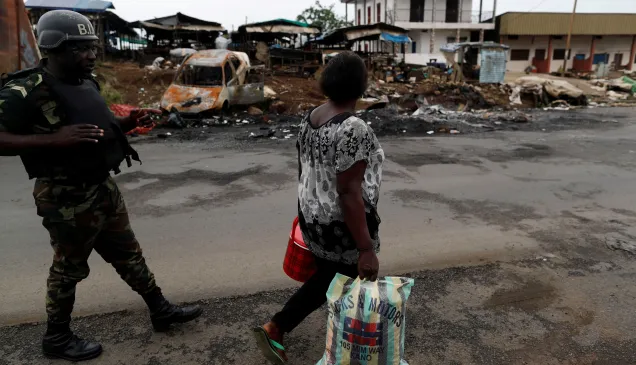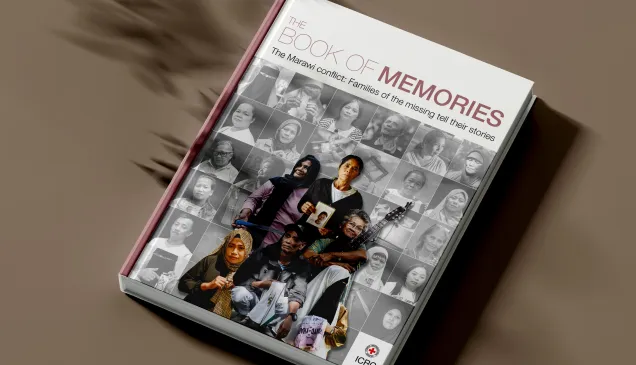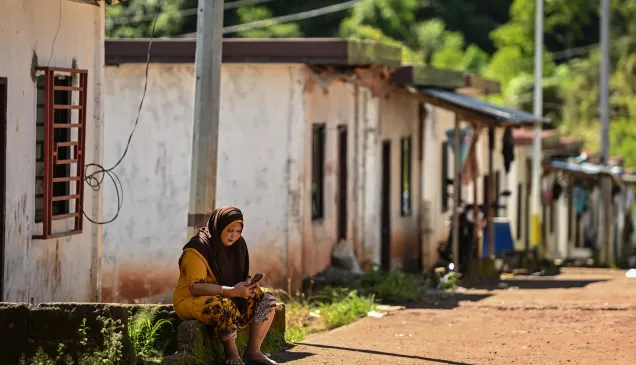Philippines: Moving towards self-sufficiency
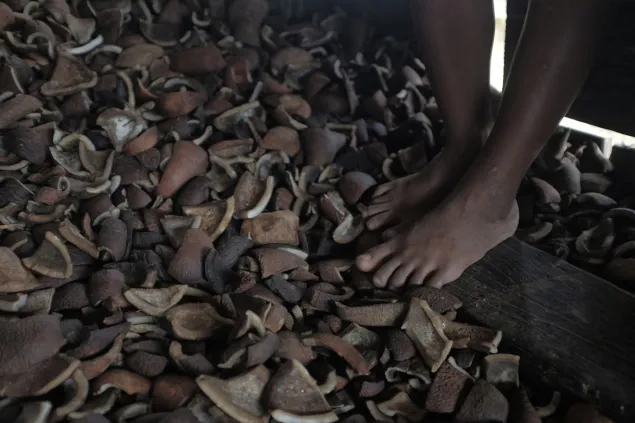
Countless crops were damaged or destroyed when Typhoon Haiyan ravaged central Philippines in 2013. Among those heavily affected were coconut farmers who rely on trading copra – the dried coconut meat used to make oil – for their source of income. As it takes at least five years to re-grow and bear fruit, recovery for this sector will take longer than most.
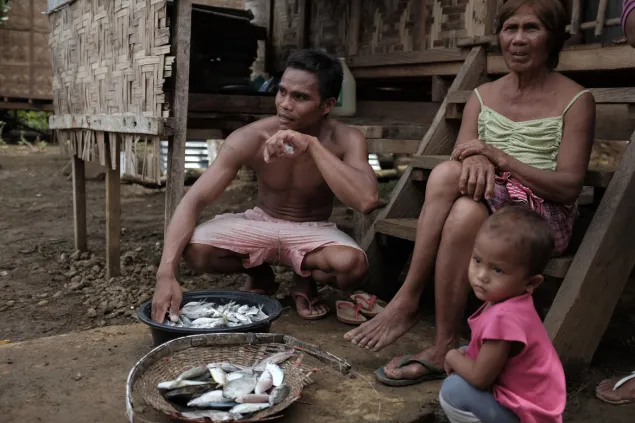
Marabut, Samar, Philippines
Thanks to a cash grant from the ICRC, Baldisco Ogale was able to purchase a motor for his fishing boat. Baldisco relies on his income from fishing to feed his family of four.
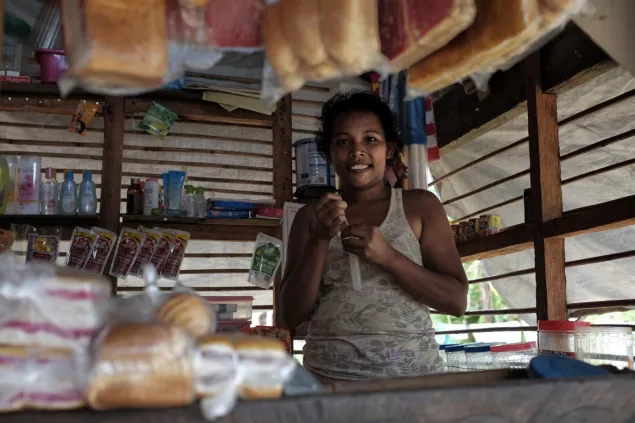
Salcedo, Eastern Samar, Philippines
For Prescila Padrilan, having a sari-sari (variety) store helps augment the family's income. They received a core shelter from the ICRC, which they have extended in front for their small business.
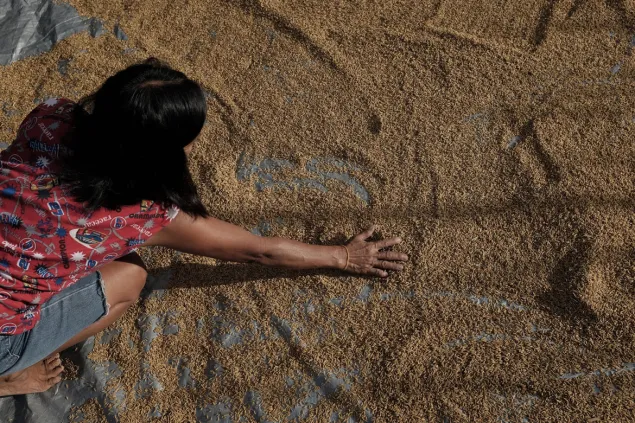
Marabut, Samar, Philippines
As a staple food, rice is a priority in most Filipino households. In Samar, many families are still in the process of recovering livelihoods that were lost during the typhoon, striving to put food on the table on a daily basis.
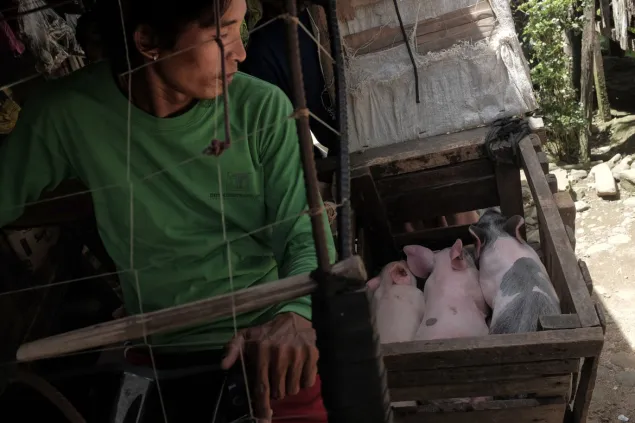
Basey, Samar, Philippines
To help hasten recovery in affected communities, conditional cash grants were distributed to assist fishermen, farmers, small-scale livestock producers and small business owners restore their livelihoods.
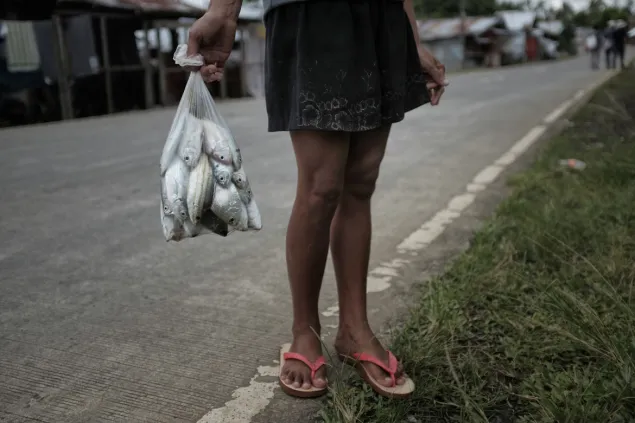
Basey, Samar, Philippines
In the aftermath of Typhoon Haiyan, many aid organizations rushed to help affected communities get back on their feet. A large number of boats were distributed, some even to people who didn't previously fish. With the increased competition, many fishermen have noticed a considerable decline in their catch.
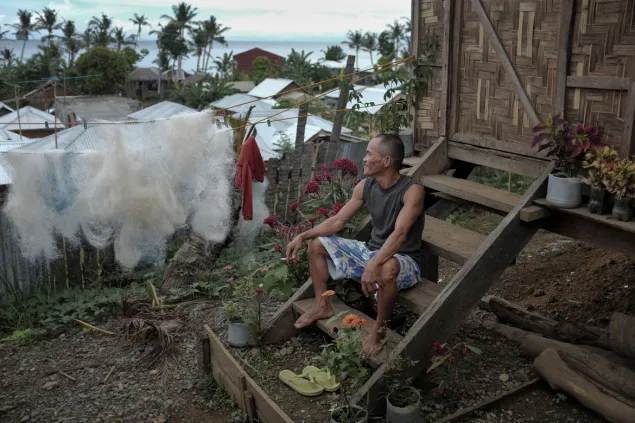
Marabut, Samar, Philippines
While his nets hang to dry, fisherman Jovencio Gaditano takes a respite in his small garden, with a view of San Pablo bay where he spends the wee hours of each morning trying to earn his keep.
A year and a half has gone by since the most powerful storm to ever hit the Philippines, leaving the Visayas region devastated. More than 16 million people were affected – lives, homes, and livelihoods were lost. While many have restored their income-generating activities prior to the typhoon or started alternative ventures, some are still struggling to make ends meet.
The ICRC, together with the Philippine Red Cross, has focused its response on Samar, an island partly affected by armed conflict and violence. To help survivors rebuild their lives, storm-resilient core shelters were given to 4,461 families and cash grants to help resume livelihoods were provided to over 71,000 people.

